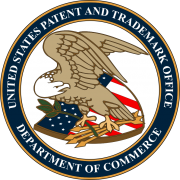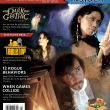When Games Collide: Protecting Intellectual Property Rights in a Crowded Market

If crowdfunding were a spectator sport, Kickstarter would be the modern-day demolition derby for intellectual property disputes. With Kickstarter, Indiegogo, and other crowdfunding sites providing ample cash for startups, it has never been easier for game publishers to get themselves into a head-on intellectual property pileup.
Related: Top 3 Intellectual Property Mistakes
Whether you are a new game inventor taking your first game out for a test drive or you have been around the block a few times, it’s good to get some safe driving tips. Most legal obstacles can be easily avoided by carefully planning your campaign. And, if an accident does happen along the way, it’s important to think about what to do afterwards to make sure you still get to your destination safely.
Even after 10 years of publishing games, I still get into a minor fender bender once in a while. While launching my last game through Kickstarter (ALPHA BANDITS, funded July 2014) I got broadsided by another game inventor completely by accident. Luckily, we were both able to walk away from the crash with just a few scratches (and bruised egos) because we were willing to work together to make a win-win result out of an unfortunate situation.
Before I get into the details of my situation, let’s first define intellectual property and learn about how we can protect our property rights.
 According to the United States Patent and Trademark Office (USPTO), Intellectual Property is defined as: "Creations of the mind — creative works or ideas embodied in a form that can be shared or can enable others to recreate, emulate, or manufacture them. There are four ways to protect intellectual property — patents, trademarks, copyrights or trade secrets."
According to the United States Patent and Trademark Office (USPTO), Intellectual Property is defined as: "Creations of the mind — creative works or ideas embodied in a form that can be shared or can enable others to recreate, emulate, or manufacture them. There are four ways to protect intellectual property — patents, trademarks, copyrights or trade secrets."
Patents are inventions of design or process. For a game, this could be a new way of creating a 10-level game board or a process of coming up with a point mechanism for establishing who wins a game. Patents are governed by the USPTO. Usually board games are safe from getting into trouble from patent infringement unless they knowingly and willingly copy another game’s patent.
October, 2007. Innovention Toys, LLC, sued MGA Entertainment, Inc., for creating a game called Laser Battle, which they claim infringes on Innovention’s game Khet (in which players use reflective and nonreflective pieces to direct light from a laser beam).
Result: MAJOR ACCIDENT!
Crowdfunded: No
Status: Still Smoldering
In March 2014, after more than 6 years of litigation, Innovention Toys won a judgment case against MGA, although MGA has contested the settlement amount.
A Trademark is usually the name of your game or your company and it’s what you use to promote and sell your brand to the public. A trademark is used to protect consumers when buying a product so that there should be no confusion over which company owns the product. Trademarks are also governed by the USPTO.
September, 2013. Quinn & Sherry, owners of The Game of Things trademark sends Terrible People, LLC, a cease and desist notice to stop using a confusing brand name: TERRIBLE THINGS.
Result: FENDER BENDER!
Crowdfunded: Raised over $78,000 on Kickstarter
Status: Resolved
Reluctant to get into a lawsuit, Terrible People, LLC, agreed to change their game name to A TERRIBLE TIME.
A Copyright covers creative works, which can include a game’s artwork, instructions, or music. Copyrights are governed by the U.S. Copyright Office, a division of the Library of Congress.
March, 2014. Wizards of the Coast LLC sues CRYPTOZOIC ENTERTAINMENT, LLC, and HEX ENTERTAINMENT, LLC, for copyright infringement over Hex’s alleged similarity to Magic: The Gathering.
Result: MAJOR ACCIDENT!
Crowdfunded: Raised Nearly $2.3 Million on Kickstarter
Status: Pending Litigation
A Trade Secret is a secret a company keeps secret (duh) and is typically self-governed by the company. While trade secrets can also include contact lists, databases, and other standard company information, usually the big lawsuits for trade secret misappropriations arise by taking someone else’s idea and using it without permission or payment.
May, 2014. ZeniMax Media sues Oculus VR for alleged trade secret misappropriation. Oculus is the creator of a ground-breaking virtual reality headset for immersive video gaming. ZeniMax claims one of their former employees, while working for ZeniMax, helped Oculus by providing proprietary technology and know-how that enabled Oculus to develop their VR headset.
Result: MAJOR ACCIDENT!
Crowdfunded: Raised $2.5 Million on Kickstarter and sold to Facebook for $2 Billion (Yes, $2 Billion, with a 'B')
Status: Pending

After hearing about all these accidents — some may be more intentional than others — it may make a game inventor want to keep their idea locked up in the garage. But fear of getting sued or ripped off shouldn’t keep a great idea from getting made, especially when game designers now have amazing access to startup capital from crowdfunding sites.
While there is always a risk of running into a legal problem with your crowdfunding campaign, careful planning and research, combined with a willingness to work through any minor issues, can help you work around or walk away from most minor intellectual property disputes.
Next Page: What Happened to Me






As your story unfolded, I expected your issue to emerge with Word Thief, by Outset Media. They most recently published the game in 2009, although it appears to be out of print now. The game sounds similar in concept to Alpha Bandits, in that players form words with letters and steal letters from each other, except that Word Thief uses cards rather than tiles. Can you elaborate on why Word Thief did not pose an intellectual property conflict?
Great question Paul,
Reading the Word Thief BGG page over, my feeling is that it shouldn't pose an IP conflict because the games are so dissimilar. Why? AB doesn't use cards or suits (tiles), players don't steal words (the use bandit tiles to steal, flip, banish letters), there is no poker chips to add up the scores (players add up points based on letter count and bonuses)...therefore I don't think that copyright or patent issues would be any problem. Of course Outset could see the issue differently, and that would be their right to disagree.
Here's some more comments on why it shouldn't be an issue:
COPYRIGHT: Imagine games not having dwarfs, wizards or 12 sided dice because another company used them first? Imagine movies about zombies not being made, because someone had already created a zombie movie? Zombie movies (like word games) are OK to make, as long as they don't copy someone else's work word for word (the exception being movies in the public domain like Night of the Living Dead http://en.wikipedia.org/wiki/Night_of_the_Living_Dead ... which is another conversation). I guess someone could also mention Scrabble, Banagrams, Pijin, Turbo Words, Kerflip as being of similar game play. My personal feeling is that you have to own the work as your own, similar to an author writing a manuscript. Does the game feel like a clone of another game (like it got full-on ripped off) or does it stand on it's own and just have a similar theme?
PATENT: For games that are patented (most aren't), you would have to copy the mechanics of the game as a knock-off, and not improve on them. Patents aren't meant to limit inventors from improving on a mechanism, but are meant to keep companies from profiting off the exact mechanism. There is no IP issues on patent at all.
TRADEMARK: A consumer purchasing Alpha Bandits would have to be confused in that they were actually purchasing Word Thief in order for there to be a trademark issue. My feeling here is that they names are completely different and also connote different meanings. The definition of Bandit is "a robber or outlaw belonging to a gang and typically operating in an isolated or lawless area..." which is key to the game, because it's not just about stealing letters (thief), but messing with people's words by banishing, flipped and acting generally devious (bandit).